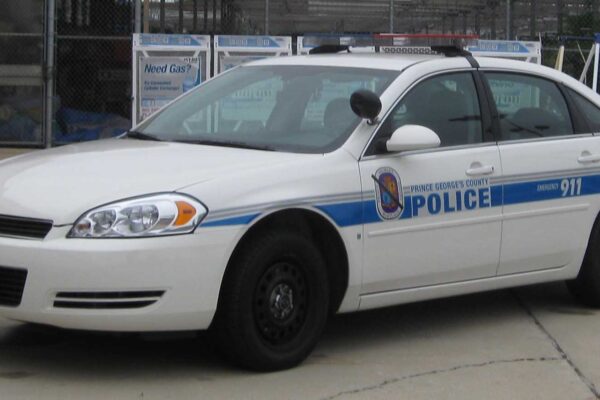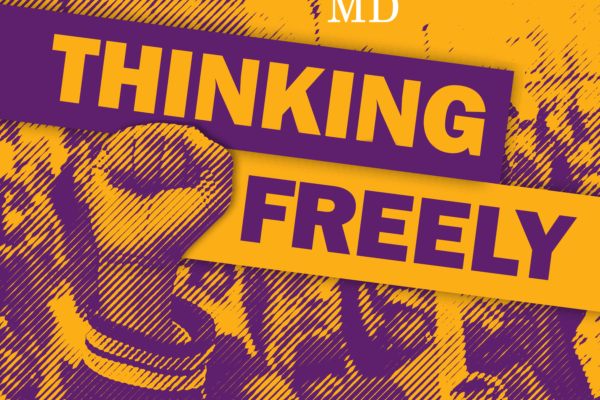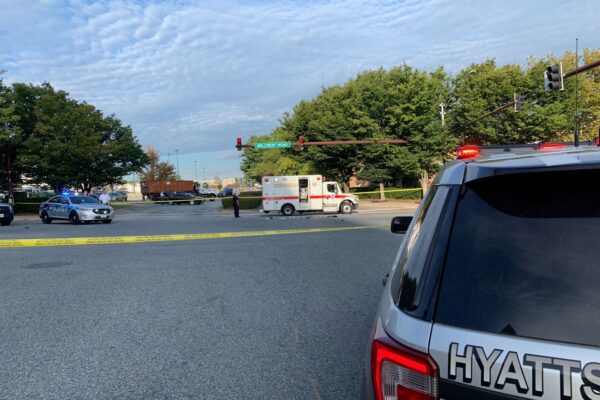BALTIMORE, MD – The victims of police brutality have historically and currently been Black people, People of Color, and people with mental health disabilities. As nationwide protests continue in the wake of police officers murdering George Floyd, we must remember victims of police killings in Maryland, too: Emanuel Oates, Leonard Shand, Korryn Gaines, Manuel Espina, William Green, Tyrone West, Christopher Brown, Gary Hopkins, Jr., Robert White, Freddie Gray, and more. On this month’s episode of the Thinking Freely podcast, host Amber Taylor is joined by Tracy Shand, sister to Leonard Shand, and Shamāiah Manriquez, sister to Emanuel Oates, who share their experiences and talk about how the police should have prevented killing their brothers. Taylor also talks with Jay Jimenez, the ACLU of Maryland’s legal program associate, about some of the trends we are seeing in police killings, recommendations to reduce these tragic deaths, and new statewide demands to reimagine policing.
Thinking Freely is a podcast that gives its listeners more power by informing them on the latest issues and providing roadmaps for how they can make a difference. Last month’s episode focused on knowing your rights in police encounters. This month, we talk about how police killing Black people is not new but rather a problem America has been dealing with for centuries. We also offer ideas on how we can reimagine policing in our communities to make all communities safe and hold police accountable.
Families of these victims often have to face these tragedies with little hope for justice. As Jay Jimenez said: “The immediate family members of the people killed by police have almost no access to any police records regarding the death of their loved one or the investigation. In fact, most of the time, they have no access at all. It’s basically a shroud of secrecy that adds even more pain to what the families are already experiencing from the loss of their loved one.” Family members struggle even more because of laws like Maryland’s Law Enforcement Officers’ Bill of Rights, which gives police special rights against punishment for wrongdoing and is one of the most extreme such laws in the country.
Tracy Shand, sister of Leonard Shand, said in reference to the police: “Your response should not be to kill us. It should be to protect us by any means necessary. Laws need to be changed in every single county, district, state within the United States when it comes to police officers going into Black communities. There’s a problem and it’s a racial problem. It’s either you are for us, meaning for our community, whether its Black, Latinos, or Asian, it doesn’t matter. If you’re for us, you’re for us. You can’t say you are going to protect us then come out and hurt us.”
The people who are killed by police are disproportionately Black and People of Color – across the nation and in the state of Maryland. An ACLU report covering 2010-2014 showed there were at least 109 people killed by police in Maryland and nearly 70 percent of those killed were Black, even though Black people make up about 30 percent of the population. However, it was only in recent years that law enforcement agencies were required to release information about police killings – after family members of victims and advocates came together and demanded change.
There are ways to prevent more police killings and make our communities safer. For example, programs like Safe Streets in Baltimore deescalates and meditates disputes, and have been shown to improve safety and reduce gun violence. In contast, the training that police receive often promotes a “me vs. them” mentality, which instills fear of outside threats instead of promoting healthy police-citizen relations. The ACLU of Maryland advocates for de-escalation training, police transparency, and police accountability to begin to address these issues.
Jay Jimenez, ACLU Legal Program Associate, said: “I want the public to know that these police killings, they’re preventable. Everyone should have the right to have their lives protected.” Jimenez also talked about other police reform issues, including defunding the police, dismantling systemic racism in policing, and the importance of holding police accountable locally through support of organizations like Silver Spring Justice and Community Justice in Prince George’s County. Jimenez also discusses new statewide police reform priorities supported by more than 60 groups, as well as a growing number of state legislators.
Shamāiah Manriquez, sister of Emanuel Oates, said: “Black lives do matter. They got to understand that us as Black people are humans too. My brother, I thought he had a future. I feel like his life was cut off short.”
Policing in Maryland is broken. Reimagining the whole system is necessary, not optional. Black people, along with our nation, have lost too many lives.
Thinking Freely provides Marylanders with information that will protect them and lead to activism. Listen to this episode of Thinking Freely to learn about police reform, the impact of police killings on Black communities and communities of color, and ways to take action. Listen here.
###
Related Content

Statement on Today’s Police Shooting and Killing of a Black Man in a Disoriented State in Hyattsville, MD
Stay Informed
Sign up to be the first to hear about how to take action.
By completing this form, I agree to receive occasional emails per the terms of the ACLU’s privacy statement.
By completing this form, I agree to receive occasional emails per the terms of the ACLU’s privacy statement.



